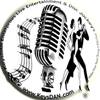State of Washington - WA
Washington is a state in the Pacific Northwest of the United States. The state is named after George Washington, the first President of the United States. As of the 2000 census, the state population was approximately 5.9 million and the state work force numbered about 3.1 million. Residents are called "Washingtonians" (emphasis on the third syllable, pronounced as tone). It is also called Washington State when there is need to distinguish it from Washington, D.C., the nation's capital.
Geography
Washington is bounded by the Pacific Ocean to the west; Oregon to the south (the Columbia River forming most of this border); Idaho to the east and British Columbia, Canada to the north. It is famous for scenery of breathtaking beauty and sharp contrasts. High mountains rise above sparkling coastal waters and above both barren semi-desert and lush evergreen forests. Its coastal location and Puget Sound harbors give it a leading role in trade with Alaska, Canada, and the Pacific Rim. Puget Sound's many islands are served by the largest ferry fleet in the United States.
Washington is a land of contrasts. The deep forests of the Olympic Peninsula are among the [[Rain|. The eastern side of the state can be divided into two regions: the Okanogan Highlands and the Columbia River Basin.
Map of Washington counties Olympic Coast National Marine SanctuaryAreas under the management of the National Park Service include:
Ebey's Landing National Historical Reserve near Coupeville
Fort Vancouver National Historic Site at Vancouver
Klondike Gold Rush Seattle Unit National Historical Park in Seattle
Lake Chelan National Recreation Area near Stehekin
Lake Roosevelt National Recreation Area along the Columbia River
Lewis and Clark National Historic Trail
Mount Rainier National Park
Nez Perce National Historical Park
North Cascades National Park near Marblemount
Olympic National Park at Port Angeles
Ross Lake National Recreation Area at Newhalem
San Juan Island National Historical Park in Friday Harbor
Whitman Mission National Historic Site at Walla Walla
Areas under the National Wilderness Preservation System include:
Clearwater Wilderness
Central Washington, Columbia River Plateau, Eastern Washington, Inland Empire (Pacific Northwest), Kitsap Peninsula, Palouse, and Western Washington
Geographical features
The Dalles Dam on the Columbia River Mount Rainier with Tacoma in foregroundPuget Sound
Bainbridge Island
Camano Island
Whidbey Island
Vashon Island
San Juan Islands
Columbia River
Snake River
Yakima River
Cascade Range
Mount Adams
Mount Baker
Glacier Peak
Mount Rainier
Mount St. Helens
Mount Stuart
Olympic Mountains
Mount Olympus
Adjacent states
British Columbia of Canada - north
Idaho - east
Oregon - south
Pacific Ocean - west
Mt. Rainier reflected in Reflection lake.See also: List of Washington rivers
History
For more details on this topic, see History of Washington.
Prior to the arrival of explorers from Europe, this region of the Pacific Coast had many established tribes of Native Americans, each with its own unique culture. Today, they are most notable for their totem poles and their ornately carved canoes and masks. Prominent among their industries were salmon fishing and whale hunting. In the east, nomadic tribes traveled the land and missionaries such as the Whitmans settled there.
The first European record of a landing on the Washington coast was by Spanish Captain Don Bruno de Heceta in 1775, on board the Santiago, part of a two-ship flotilla with the Sonora. They claimed all the coastal lands up to the Russian possessions in the north for Spain.
In 1778, British explorer Captain James Cook sighted Cape Flattery, at the entrance to the Strait of Juan de Fuca, but the straits would not be explored until 1789, by Captain Charles W. Barkley. Further explorations of the straits were performed by Spanish explorers Manuel Quimper in 1790 and Francisco de Eliza in 1791, then by British Captain George Vancouver in 1792.
The Spanish Nootka Convention of 1790 opened the northwest territory to explorers and trappers from other nations, most notably Britain and then the United States. Captain Robert Gray (for whom Grays Harbor county is named) then discovered the mouth of the Columbia River. He named the river after his ship, the Columbia. Beginning in 1792, Gray established trade in sea otter pelts. The Lewis and Clark Expedition entered the state on October 10, 1805.
In 1819, Spain ceded their original claims to this territory to the United States. This began a period of disputed joint-occupancy by Britain and the U.S. that lasted until June 15, 1846, when Britain ceded their claims to this land with the Treaty of Oregon.
What was to become Washington State's first family was that of Washington's founder, the Black pioneer George Washington Bush and his White wife, Isabella James Bush, from Missouri and Tennessee, respectively. They led four White families into the territory and settled what is now Tumwater, Washington. They settled in Washington to avoid Oregon's racist settlement laws. [2]
Because of the overland migration along the Oregon Trail, many settlers wandered north to what is now Washington and settled the Puget Sound area. The first settlement was New Market (now known as Tumwater) in 1846. In 1853, Washington Territory was formed from part of Oregon Territory.
Washington became the 42nd state in the United States on November 11, 1889.
Early prominent industries in the state included agriculture and lumber. In eastern Washington, the Yakima Valley became known for its apple orchards, while the growth of wheat using dry-farming techniques became particularly productive. The heavy rainfall to the west of the Cascade Range produced dense forests, and the ports along Puget Sound prospered from the manufacturing and shipping of lumber products, particularly the Douglas fir. Other industries that developed in the state include fishing, salmon canning and mining.
By the turn of the 20th century, Washington was of dangerous repute in the minds of many Americans. Indisputably as "wild" as the rest of the American Old West, the public image of Washington merely replaced cowboys with lumberjacks, and desert with forestland. One city in particular, Aberdeen, had the distinction of being "the roughest town west of the Mississippi" because of excessive gambling, violence, extreme drug use and prostitution (the city itself changed very little over the years and remained off-limits to military personnel well into the early 1980s).
For a long period, Tacoma was noted for its large smelters where gold, silver, copper and lead ores were treated. Seattle was the primary port for trade with Alaska and the rest of the country, and for a time it possessed a large ship-building industry. The region around eastern Puget Sound developed heavy industry during the period including World War I and World War II, and the Boeing company became an established icon in the area.
During the Great Depression, a series of hydroelectric dams were constructed along the Columbia river as part of a project to increase the production of electricity. This culminated in 1941 with the completion of the Grand Coulee Dam, the largest dam in the United States.
During World War II, the Puget Sound area became a focus for war industries, with the Boeing Company producing many of the nation's heavy bombers and ports in Seattle, Bremerton, and Tacoma were available for the manufacture of warships. Seattle was the point of departure for many soldiers in the Pacific, a number of which were quartered at Golden Gardens Park. In eastern Washington, the Hanford Works atomic energy plant was opened in 1943 and played a major role in the construction of the nation's atomic bombs.
On May 18, 1980, following a period of heavy tremors and eruptions, the northeast face of Mount St. Helens exploded outward, destroying a large part of the top of the volcano. This eruption flattened the forests, killed 57 people, flooded the Columbia River and its tributaries with ash and mud, and blanketed large parts of Washington in ash, making day look like night.
[edit] Demographics
Historical populations
Census
year Population
--------------------------------------------------------------------------------
1850 1,201
1860 11,594
1870 23,955
1880 75,116
1890 357,232
1900 518,103
1910 1,141,990
1920 1,356,621
1930 1,563,396
1940 1,736,191
1950 2,378,963
1960 2,853,214
1970 3,409,169
1980 4,132,156
1990 4,866,692
2000 5,894,121
2005 (estimated) 6,287,759
Washington Population Density MapAccording to the U.S. Census as of 2005, Washington has an estimated population of 6,287,759, which is an increase of 80,713, or 1.3%, from the prior year and an increase of 393,619, or 6.7%, since the year 2000. This includes a natural increase since the last census of 180,160 people (that is 418,055 births minus 237,895 deaths) and an increase from net migration of 215,216 people into the state. Immigration from outside the United States resulted in a net increase of 134,242 people, and migration within the country produced a net increase of 80,974 people.
As of 2004, Washington's population included 631,500 foreign-born (10.3% of the state population), and an estimated 100,000 illegal aliens (1.6% of state population).[citation needed]
Washington is currently the 12th fastest growing state.[citation needed]
Demographics of Washington (csv)
By race White Black AIAN Asian NHPI
AIAN is American Indian or Alaskan Native - NHPI is Native Hawaiian or Pacific Islander
2000 (total population) 88.64% 4.12% 2.73% 6.75% 0.74%
2000 (hispanic only) 7.00% 0.23% 0.28% 0.15% 0.06%
2005 (total population) 87.65% 4.45% 2.65% 7.69% 0.78%
2005 (hispanic only) 8.16% 0.33% 0.30% 0.20% 0.07%
Growth 2000-2005 (total population) 5.49% 15.37% 3.54% 21.57% 12.25%
Growth 2000-2005 (non-hispanic only) 3.88% 13.41% 2.18% 21.11% 11.20%
Growth 2000-2005 (hispanic only) 24.32% 47.88% 15.40% 41.33% 24.11%
The six largest reported ancestries in Washington are: German (18.7%), English (12%), Irish (11.4%), Norwegian (6.2%), Mexican (5.6%) and Filipino (3.7%).
There are many migrant Mexican farm workers living in the southeast-central part of the state, though the population is also increasing as laborers in Western Washington. Wahkiakum County, as well as most counties in the state, has many residents of Scandinavian origin.
Washington has the fifth largest Asian population of any state. The Filipino community is the largest Asian American subgroup in the state. Gary Locke was elected as the first Asian American governor at the end of the 20th century.
African Americans are less numerous than Asians or Hispanics in many communities, but have been elected as mayor and King County Executive. In Seattle, minorities are moving out into the southern part of the city as well as many suburban areas such as South King County. Tacoma also has a rising African-American population.
Washington is the location of many Indian reservations, with some placing prominent casinos next to major interstate highways, and residents have adopted many of the artwork themes of the northwest coast indians who were noted for totem poles, longhouses, dugout canoes and pictures of animals such as the design used for the Seattle Seahawks. Many cities have traditional names created by Native Americans such as Seattle, Puyallup and Walla Walla.
6.7% of Washington's population was reported as under 5, 25.7% under 18, and 11.2% were 65 or older. Females made up approximately 50.2% of the population.
Religion
The religious affiliations of Washington's population are:
Christian – 71%
Protestant – 45%
Episcopal – 7%
Lutheran – 7%
Methodist – 4%
Presbyterian – 3%
Other Protestant or general Protestant – 24%
Roman Catholic – 22%
LDS – 5%
Other Christian – 1%
Other Religions – 2%
Non-Religious – 27%
As with many other Western states, the percentage of Washington's population identifying themselves as "non-religious" is higher than the national average. The percentage of non-religious people in Washington is the highest of any state.[3]
Economy
The 2004 total gross state product for Washington was $262 billion, placing it 14th in the nation[4]. The per capita income was $33,332. Significant business within the state include the design and manufacture of jet aircraft (Boeing), computer software development (Microsoft, Amazon.com, drugstore.com, Nintendo of America), electronics, biotechnology, aluminum production, lumber and wood products, mining, and tourism. The state has significant amounts of hydroelectric power generation. Significant amounts of trade with Asia pass through the ports of the Puget Sound. See list of United States companies by state.
The state of Washington is one of only seven states that does not levy a personal income tax. Neither does the state collect a corporate income tax. However, Washington businesses are responsible for various other state levies. Washington's state sales tax is 6.5 percent, and it applies to services as well as products.[1] Most foods are exempt from sales tax; however, prepared foods, dietary supplements and soft drinks remain taxable. The combined state and local retail sales tax rates increase the taxes paid by consumers, depending on the variable local sales tax rates, generally between 8 and 9 percent[2]. An excise tax applies to certain select products such as gasoline, cigarettes, and alcoholic beverages. Property tax was the first tax levied in the state of Washington and its collection accounts for about 30 percent of Washington's total state and local revenue. It continues to be the most important revenue source for public schools, fire protection, library, park and recreation, and other special purpose districts.
All real and personal property is subject to tax unless specifically exempted by law. Personal property also is taxed, although most personal property owned by individuals is exempt. Personal property tax applies to personal property used when conducting business or to other personal property not exempt by law. All property taxes are paid to the county treasurer's office where the property is located. Washington does not impose a tax on intangible assets such as bank accounts, stocks or bonds. Neither does the state assess any tax on retirement income earned and received from another state. Washington does not collect inheritance taxes; however, the estate tax is decoupled from the federal estate tax laws, and therefore the state imposes its own estate tax.
Washington is one of eighteen states which has a government monopoly on sales of alcoholic beverages, although beer and wine with less than 20 percent alcohol by volume can be purchased in convenience stores and supermarkets. Liqueurs (even if under 20 percent alcohol by volume) and spirits can only be purchased in state-run or privately-owned-state-contracted liquor stores.[5]
Bill Gates (worth $53 billion) is the best known billionaire from the state, and wealthiest man in the world. Other Washington state billionaires Paul Allen (Microsoft), Steve Ballmer (Microsoft), Jeffrey Bezos (Amazon), Craig McCaw (McCaw Cellular), James Jannard (Oakley), John Edson (leisure craft), Howard Schultz (Starbucks), and Charles Simonyi (Microsoft)[3]
Agriculture
A Whitman County farmWashington is a leading agricultural state. (The following figures are from the Washington State Office of Financial Management and the Washington Agricultural Statistics Service.)
For 2003, the total value of Washington's agricultural products was $5.79 billion, the 11th highest in the country. The total value of its crops was $3.8 billion, the 7th highest. The total value of its livestock and specialty products was $1.5 billion, the 26th highest.
In 2004, Washington ranked first in the nation in production of red raspberries (90.0% of total U.S. production), wrinkled seed peas (80.6%), hops (75.0%), spearmint oil (73.6%), apples (58.1%), sweet cherries (47.3%), pears (42.6%), peppermint oil (40.3%), Concord grapes (39.3%), carrots for processing (36.8%), and Niagara grapes (31.6%). Washington also ranked second in the nation in production of lentils, fall potatoes, dry edible peas, apricots, grapes (all varieties taken together), asparagus (over a third of the nation's production), sweet corn for processing, and green peas for processing; third in tart cherries, prunes and plums, and dry summer onions; fourth in barley and trout; and fifth in wheat, cranberries, and strawberries.
Transportation
Washington has an extensive system of state highways, called State Routes, as well as the third-largest ferry system in the world. There are 140 public airfields in Washington, including 16 state airports owned by the Washington State Department of Transportation. Boeing Field in Seattle is the busiest airport by numbers of planes in the world. The unique geography of Washington presents exceptional transportation needs.
There are extensive waterways in the midst of Washington's largest cites, including Seattle, Bellevue, Tacoma and Olympia. The state highways incorporate an extensive network of bridges and the largest ferry system in the United States to serve transportation needs in the Puget Sound area. Washington's marine highway constitutes a fleet of twenty-eight ferries that navigate Puget Sound and its inland waterways to 20 different ports of call. Washington is home of four of the five longest floating bridges in the world: the Evergreen Point Floating Bridge, Lacey V. Murrow Memorial Bridge and Homer M. Hadley Bridge over Lake Washington, and the Hood Canal Bridge which connects the Olympic Peninsula and Kitsap Peninsula.
The Cascade Mountain Range also provides unique transportation challenges. Washington operates and maintains 7 major mountain passes and 8 minor passes. During winter months these passes are plowed, sanded, and kept safe with avalanche control. Not all are able to stay open through the winter. The North Cascades Highway on State Route 20 closes every year. Because of the extraordinary amount of snowfall and frequency of avalanches, the highway is not safe in the winter months. Although the highways have a slight curve in order for the water to run off.
Law and government
The bicameral Washington State Legislature is the state's legislative branch. The state legislature is composed of a lower House of Representatives and an upper State Senate, with 49 legislative districts apiece. Districts for the House are multimember constituences, electing two members per district, while a single member represents the district in the Senate. Currently for both houses of the legislature, the Democratic Party holds a majority in government. Both State Senators and House Representatives are elected for four year and two year terms, respectively. There are no term limits.
Washington's executive branch is headed by a governor elected for a four-year term. The current governor of Washington is Christine Gregoire, a Democrat. She has been governor since 2005.
The Washington Supreme Court is the highest court in the judiciary of the state of Washington. Nine justices serve on the bench, and are elected at large.
The U.S. Congress
The two U.S. Senators from Washington are Senator Patty Murray (D) and Senator Maria Cantwell (D).
Washington representatives in the United States House of Representatives are Jay Inslee (D-1), Richard Ray (Rick) Larsen (D-2), Brian Baird (D-3), Richard Norman "Doc" Hastings (R-4), Cathy McMorris (R-5), Norm Dicks (D-6), Jim McDermott (D-7), David Reichert (R-8), and Adam Smith (D-9).
State elected officials
Executive
Christine Gregoire, Governor (D)
Brad Owen, Lieutenant Governor (D)
Sam Reed, Secretary of State (R)
Rob McKenna, Attorney General (R)
Mike Murphy, Treasurer (D)
Brian Sonntag, Auditor (D)
Terry Bergeson, Superintendent of Public Instruction (non partisan office)
Doug Sutherland, Commissioner of Public Lands (R)
Mike Kreidler, Insurance Commissioner (D)
Politics
The state has been thought of as politically divided by the Cascade Mountains, with Western Washington being liberal (particularly the I-5 Corridor) and Eastern Washington being conservative. Since the population is larger in the west, the Democrats usually fare better statewide. Washington has voted for the Democratic candidate in presidential elections recently in 1988, 1992, 1996, 2000 and 2004. It was considered a key swing state in 1968 and 2000. In 1968, it was the only Western state to give its electoral votes to Hubert Humphrey.
While the Democratic Party has long dominated Washington, the 2004 Washington gubernatorial election was among the closest races in United States election history. The initial count gave Republican candidate Dino Rossi a lead of 261 votes out of a total vote count of 2,805,913, or 0.0093%.[4] Washington law calls for a mandatory machine recount if the difference between the candidates is less than 0.5% and 200 votes [5]. The mandatory recount again had Rossi in the lead, but it was now by 42 votes, or 0.0015% of the total 2,808,341 votes included in the first recount.[6] A second recount was done by hand, at the request of the Democratic party as allowed by law. This final recount overturned the initial results and resulted in a lead for Christine Gregoire, the Democratic candidate, of 129 votes, or 0.0045% of the 2,810,058 votes cast.[7] As this second recount was the last allowed for by Washington election law, Gregoire was inaugurated on 12 January 2005. The subsequent court battles raged for months after the election, but ultimately ended with Gregoire retaining her office. The final official count left Gregoire ahead by 133 votes.
Washington holds the distinction of becoming the first, and so far only, state to elect women to all three major statewide offices (state governor Chris Gregoire and U.S. Senators Patty Murray and Maria Cantwell) at the same time.
On January 30, 2006, Governor Christine Gregoire signed into law legislation making Washington the 17th state in the nation to protect gay and lesbian people from discrimination in housing, lending, and employment, and the 7th state in the nation to offer these protections to transgendered people. Initiative activist Tim Eyman filed a referendum that same day, seeking to put the issue before the state's voters. Despite a push from conservative churches across the state to gather signatures on what were dubbed "Referendum Sundays," Eyman was only able to gather 105,103 signatures, more than 7,000 signatures short of the minimum. As a result, the law went into effect on June 7, 2006.
Washington Governors
Important cities and towns
The Space Needle and the Downtown Seattle skyline Downtown Tacoma, WA, the third-largest city in Washington.Seattle
Spokane
Tacoma
Tri-Cities
Vancouver
Bellevue
Everett
Bremerton
Bellingham
Yakima
Olympia
Port Angeles
See also: List of cities in Washington, List of towns in Washington, Washington locations by per capita income, and City government in the state of Washington
Education
Colleges and universities
The Whitman Memorial Building at Whitman College, Walla Walla.State universities
Central Washington University
Eastern Washington University
The Evergreen State College
University of Washington
Washington State University
Western Washington University
Private universities
Antioch University Seattle
Argosy University/Seattle
Art Institute of Seattle
Bastyr University
City University
Cornish College of the Arts
DeVry University
DigiPen Institute of Technology
Gonzaga University
Henry Cogswell College
Heritage College
Northwest University
Pacific Lutheran University
St. Martin's University
School of Visual Concepts
Seattle Bible College
Seattle Pacific University
Seattle University
Trinity Lutheran College
University of Puget Sound
Walla Walla College
Whitman College
Whitworth College
Community colleges
Bates Technical College
Bellevue Community College
Bellingham Technical College
Big Bend Community College
Cascadia Community College
Centralia College
Clark College
Clover Park Technical College
Columbia Basin College
Edmonds Community College
Everett Community College
Grays Harbor College
Green River Community College
Highline Community College
Lake Washington Technical College
Lower Columbia College
Olympic College
Peninsula College
Pierce College
Renton Technical College
Seattle Community College District
Shoreline Community College
Skagit Valley College
South Puget Sound Community College
Spokane Community College
Spokane Falls Community College
Tacoma Community College
Walla Walla Community College
Wenatchee Valley College
Whatcom Community College
Yakima Valley Community College
Professional sports teams
Club Sport League City & Stadium
Seattle Seahawks Football National Football League; NFC Seattle, Qwest Field
Seattle Mariners Baseball Major League Baseball; AL Seattle, Safeco Field
Seattle SuperSonics Basketball National Basketball Association Seattle, KeyArena
Seattle Thunderbirds Ice Hockey Western Hockey League Seattle, KeyArena
Seattle Storm Basketball Women's National Basketball Association Seattle, KeyArena
Seattle Sounders Soccer USL First Division (men's)
W-League (women's) Seattle, Qwest Field
Bellingham Slam Basketball American Basketball Association Bellingham, Whatcom Community College
Bellevue Blackhawks Basketball American Basketball Association Bellevue, Meydenbauer Center
Everett Silvertips Ice Hockey Western Hockey League Everett, Everett Events Center
Spokane Chiefs Ice Hockey Western Hockey League Spokane, Spokane Arena
Tri-City Americans Ice Hockey Western Hockey League Kennewick, Toyota Center
Tri-City Fever Indoor Football National Indoor Football League Kennewick, Toyota Center
Tri-City Dust Devils Baseball Northwest League; A Pasco, Tri-City Stadium
Tacoma Rainiers Baseball Pacific Coast League; AAA Tacoma, Cheney Stadium
Spokane Indians Baseball Northwest League; A Spokane, Avista Stadium
Everett AquaSox Baseball Northwest League; A Everett, Everett Memorial Stadium
Yakima Bears Baseball Northwest League; A Yakima, Yakima County Stadium
Everett Hawks Arena Football AF2 Everett, Everett Events Center
Spokane Shock Arena Football AF2 Spokane, Spokane Arena
Miscellaneous topics
Three ships of the United States Navy, including two battleships, have been named USS Washington in honor of the state. Previous ships had held that name in honor of George Washington.
State symbols
For more details on this topic, see List of Washington state symbols.
The State song is "Washington, My Home", the State bird is the American Goldfinch and the State fruit is the Apple. The state dance, adopted in 1979, is the Square Dance.
Washington state congressional delegates
Capital punishment in Washington
List of hospitals in Washington
List of Washington state prisons
List of Washington state forests
List of radio stations in Washington
List of television stations in Washington
List of Washington county name etymologies
List of colleges and universities in Washington
List of school districts in Washington
List of ZIP Codes in Washington
List of high schools in Washington
List of U.S. Wilderness Areas in Washington
The Washington Medal of Merit
Scouting in Washington
Digitally colored elevation map of Washington.Washington State Park System
Music of Washington
List of people from Washington
List of United States companies by state
Political activism
List of Washington initiatives
References
^ Retail Sales Tax. Washington State Department of Revenue. Retrieved on 2006-09-26.
^ http://dor.wa.gov/content/home/TaxTopics/FederalDeductionLSTaxTable.aspx
^ [1] Seattle Times September 22, 2006 "No news here ... Gates still richest"
^ 2004 Washington State Initial Gubernatorial Election results
^ November 5, 2004 Rules for Mandatory Recount
^ 2004 Washington State Gubernatorial Election 1st Recount Results
^ 2004 Washington State Gubernatorial Election 2nd Recount Results
Sponsors
http://conwayyellowcab.com/
http://djlittlerock.com/
http://keysdan.com/
http://mybusinessneedshelp.com/
http://radiokeysdan.com/
http://radiowhat.com/
http://keysdan.com/DJLittleRock.com/
http://keysdan.com/HollandAR.org/
http://keysdan.com/JustTryItKaraoke.com/
http://keysdan.com/RadioKeysDAN.com/
http://keysdan.com/RadioWHAT.com/
http://keysdan.com/MyRadioExito.com/
http://keysdan.com/RadioRitmoLaFabulosa.com/




